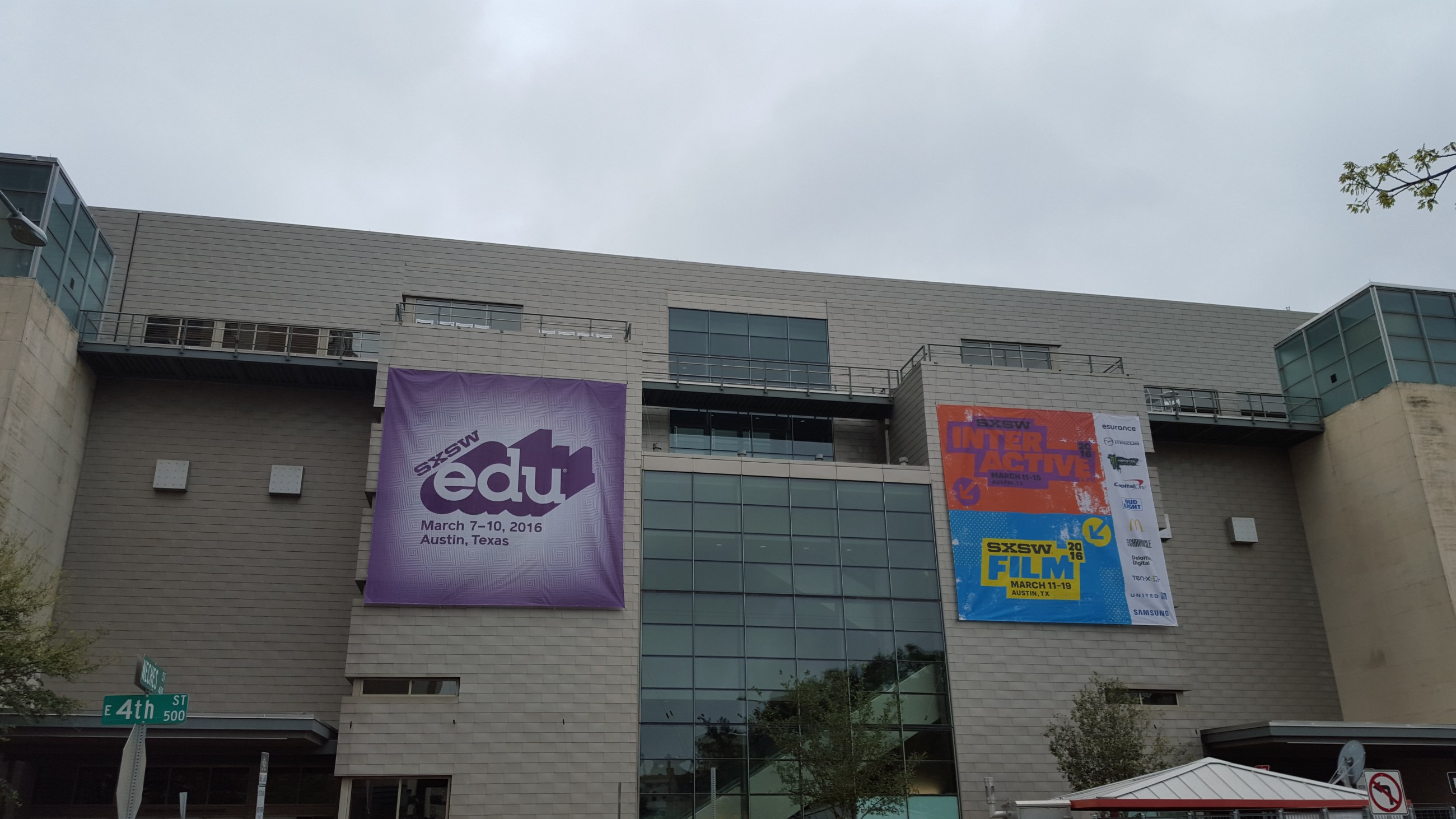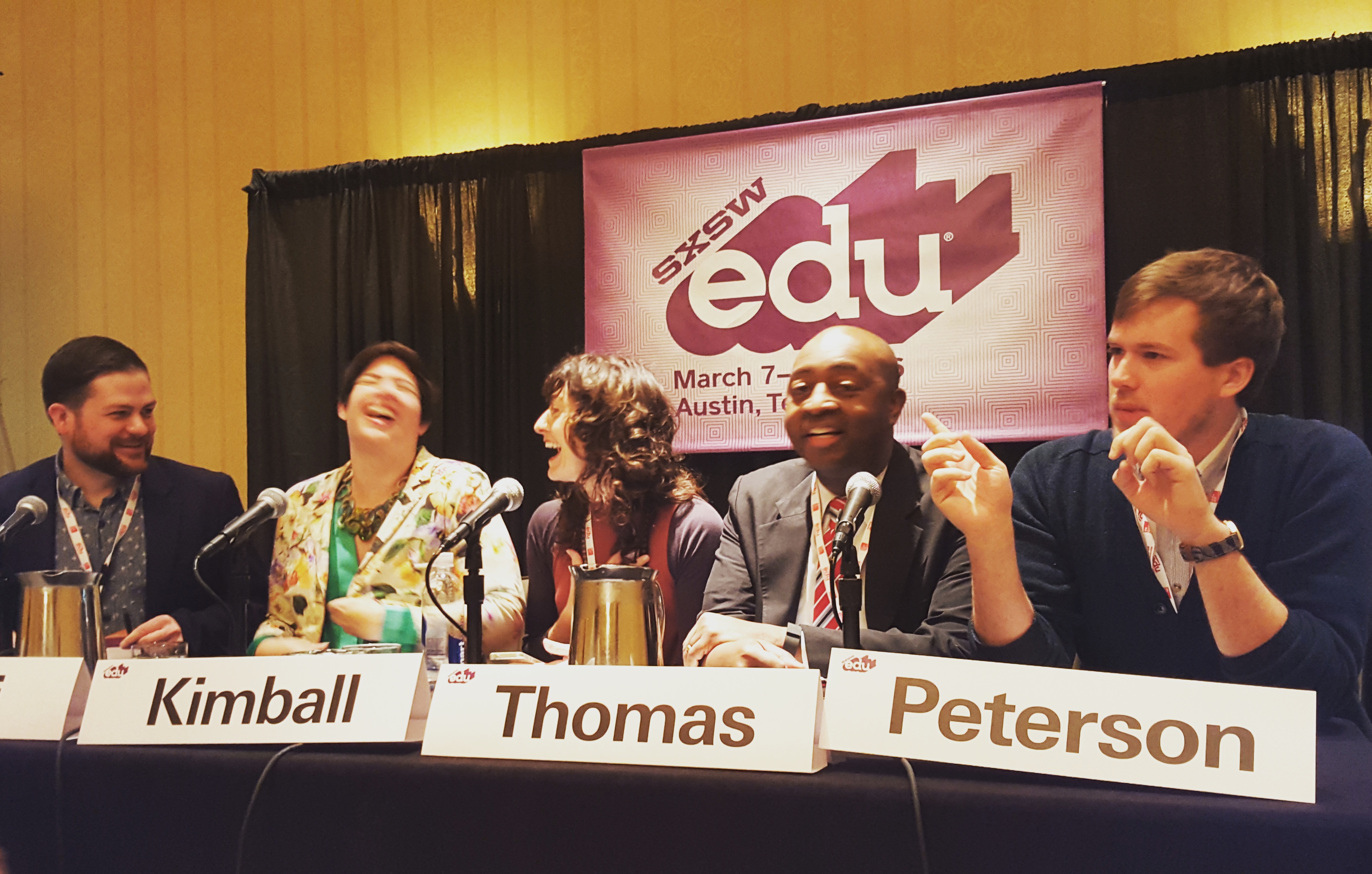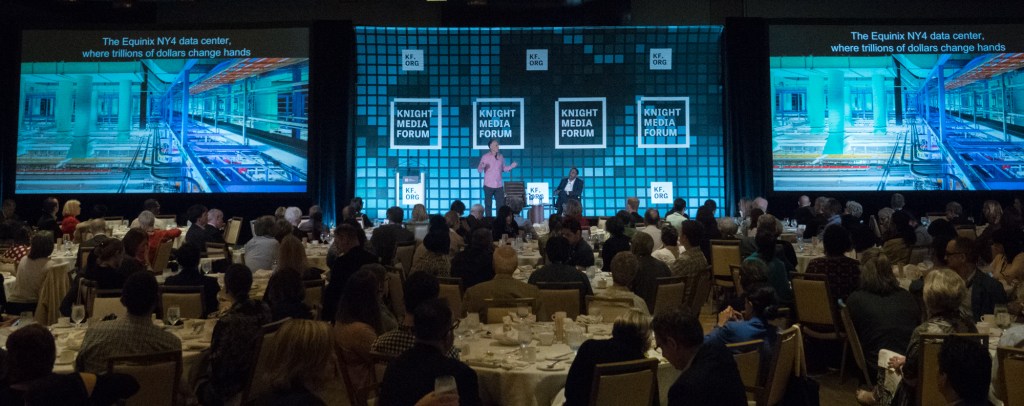
Five takeaways from SXSWedu
This post has been updated.
On Thursday Knight Foundation closed out SXSWedu, the SXSW conference track focused on educators, asking crucial questions about the future of libraries and technology, and the role of each in communities.
Two panels featured several previous Knight News Challenge on Libraries winners, such as P2PU, StoryCorps and the Internet Archive, and touched on strategies to improve technology and processes in libraries and how mobile archives are transforming community engagement.
Here are some of the key takeaways from Thursday’s sessions, “Innovation in Libraries” and “Mobile Archives: Preserving Community Memories.”
How do we create an environment for innovation?
Though the perception still exists that libraries are stuffy and isolated places, the idea of libraries as innovation centers isn’t as far-fetched as it might seem. For instance, a recent Aspen Institute report stressed that libraries could be great allies in moving communities forward on issues of civic engagement and education.
But innovation, Knight’s Chris Barr noted during a SXSWedu panel, can be a loaded term, and may be off-putting to some who might not consider themselves innovators. The Knight News Challenge operates under the assumption that innovation can occur anywhere, seeking ideas from everyone about how libraries can serve 21st century information needs.
Panelists at SXSWedu weighed in on the innovation environment, noting that the concept is often just about seeing new opportunities.
“It’s not necessarily about trying to move the whole institution forward, but trying to find pockets of opportunity,” said Shana Kimball of the New York Public Library, a News Challenge winner. For NYPL Labs, a branch of the NYPL that looks at digital library operations, that opportunity could come in using the library as a public space for collaboration, such as hosting hackathons.
How do you make improvements to libraries with communities, rather than for them?
“Libraries are very close to their communities,” said Felton Thomas, executive director of the Cleveland Public Library. He added that the theory of change for libraries can often be slower, so it’s helpful to approach innovation “as evolution, rather than revolution.”

SXSWedu panel on library innovation. Photo by Rosemary D’Amour.
How do we respond to the shift in information needs?
Alexis Rossi of the Internet Archive, a News Challenge winner that has also received other Knight funding, noted that digitization has changed the game for libraries. Digitization allows resources to extend beyond a local community, which a library typically serves, to reach a broader audience.
“The point isn’t that the local library shouldn’t exist,” Rossi said. “The point is the rest of the world can also benefit. What I want to see is people in libraries finding ways to make their resources available to the rest of the world.”
What is the impact of community engagement?
Community engagement was a fuzzy concept when Historypin, a user-generated archive of historical photos and recordings, first began. Jon Voss, the organization’s director of strategic partnerships, said the organization asked itself who they were trying to serve and what they were asking them to do.
“When you have a free tool that’s relatively easy to use, it allows for the democratization of history,” Voss said. This, the organization’s core goal, drove the idea of community engagement forward.
Either you think mobile first, or you don’t move forward
StoryCorps’ Dean Haddock shifted the conversation from libraries to the importance of mobile. With its potential to unlock creativity, Haddock echoed the news industry in his advocacy to use mobile to stay relevant.
“There are a lot of people who primarily access the Internet from their mobile device,” said Haddock. “If the technologies that we’re implementing are not responsive and mobile first, we’re ultimately doing a disservice that excludes a large portion of society from projects.”
Knight’s Chris Barr joined the Library Idea Drop at SXSW to share his thoughts on the News Challenge. See the full conversation below.
Knight News Challenge from Idea Drop & ER&L on Vimeo.
The Knight News Challenge on Libraries will award $3 million for the best ideas that respond to the question, How might libraries serve 21st century information needs. Visit newschallenge.org to apply by March 21, view our challenge brief, timeline, FAQ page, and applications from the first News Challenge on Libraries. Keep an eye on Knight Blog for updates, tips for applying and promotional events. You can also reach us with questions on Twitter via @knightfdn, @heychrisbarr, or via e-mail [email protected].
Recent Content
-
Artsarticle ·
-
Artsarticle ·
-
Communitiesarticle ·


